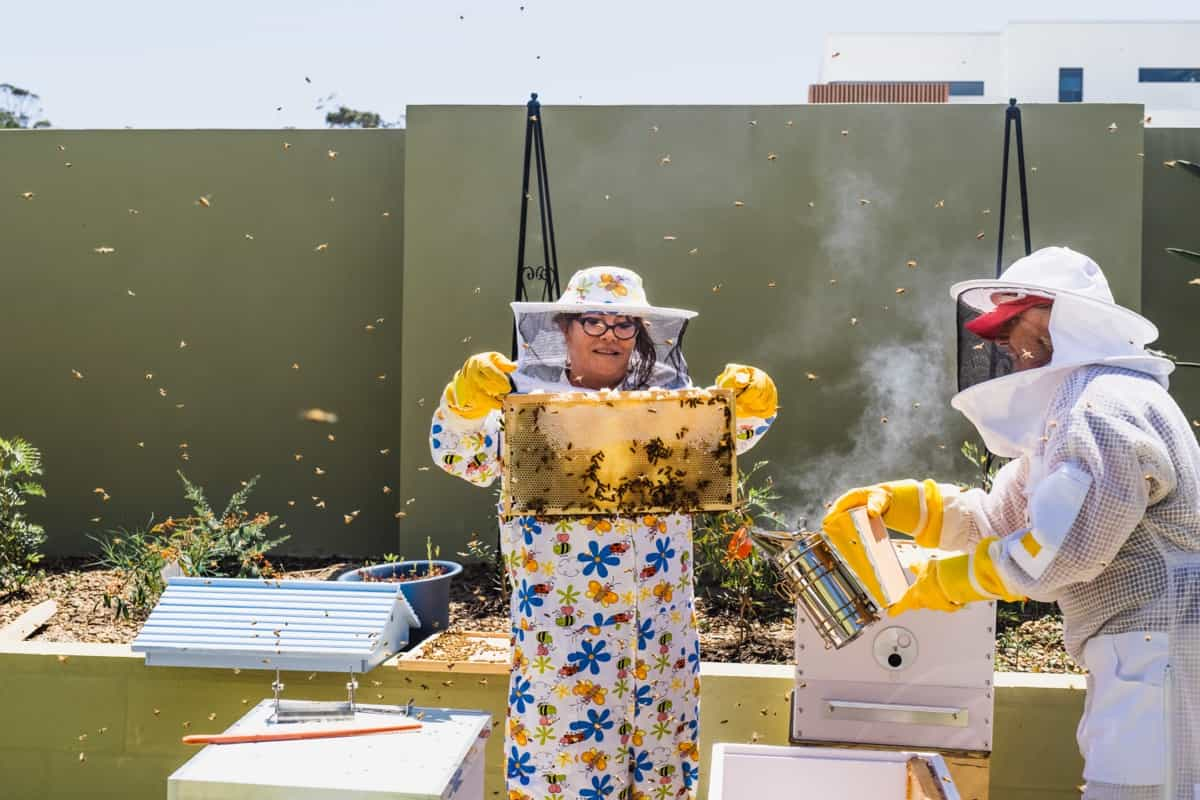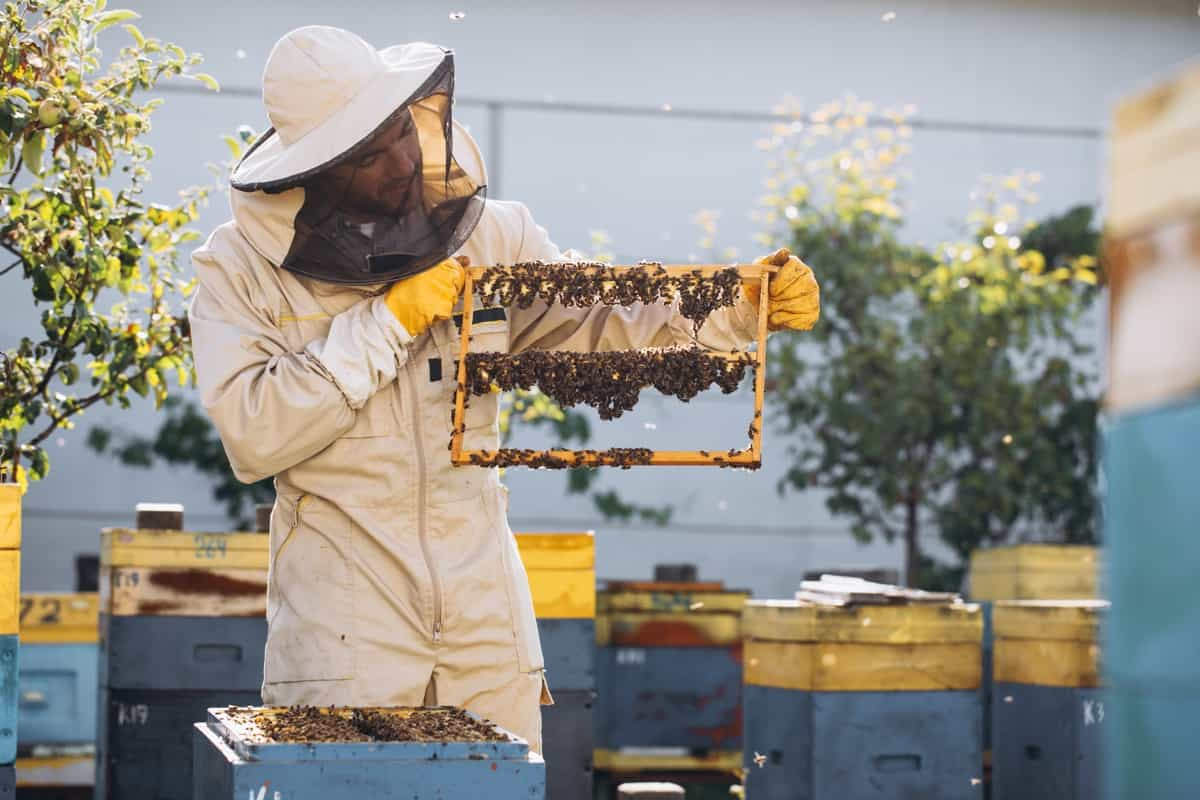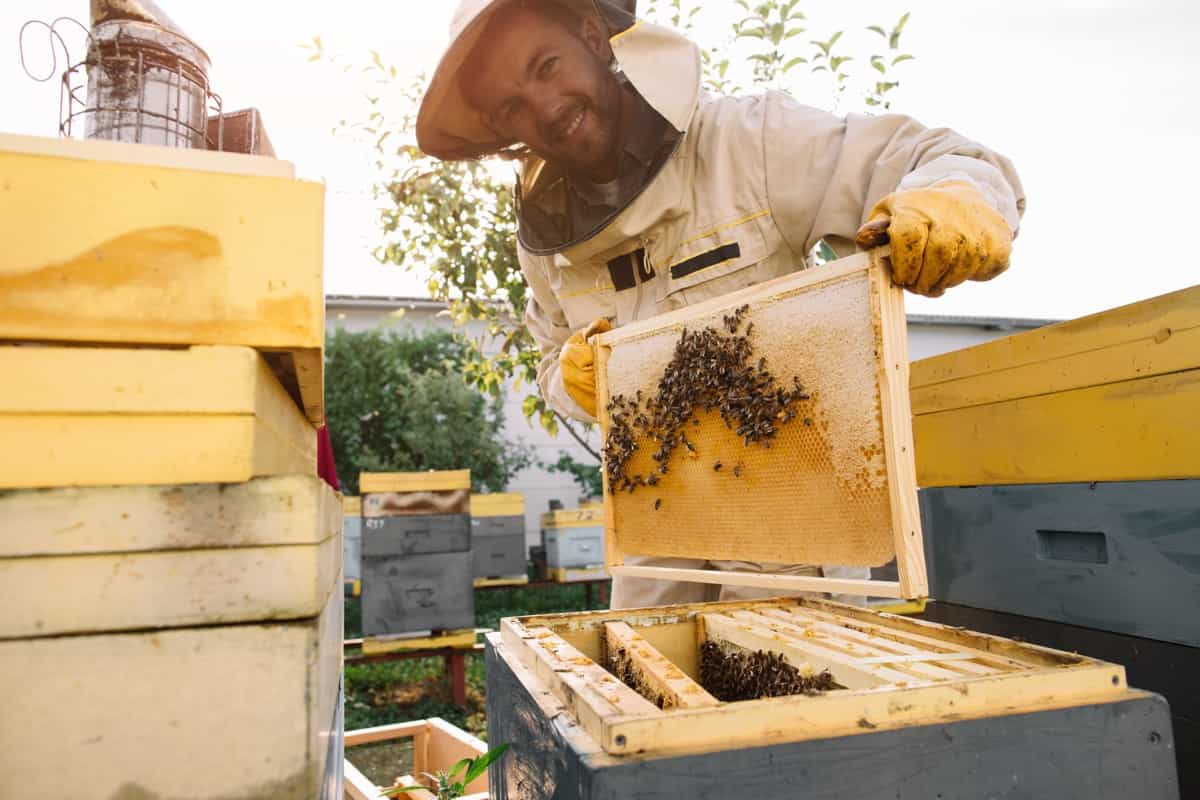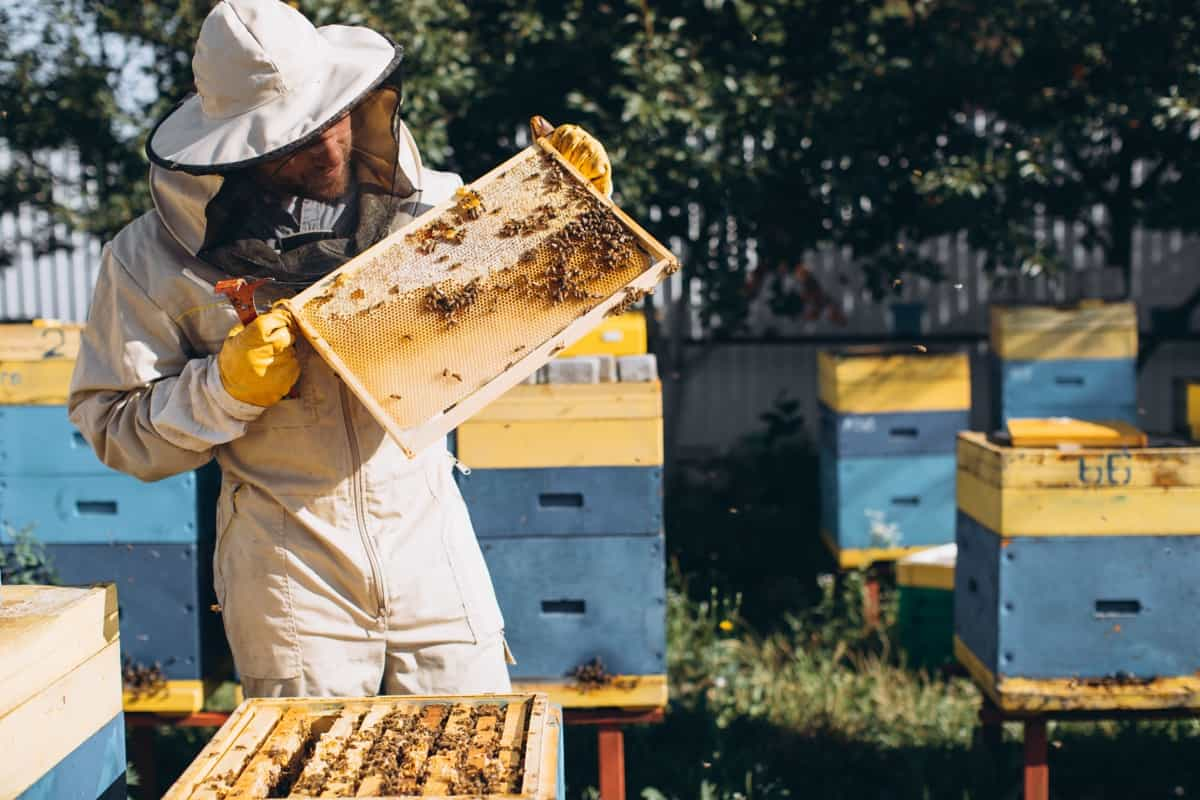Urban beekeeping in India is a growing trend, offering numerous benefits and opportunities. It involves the practice of keeping honey bee colonies in urban areas. This initiative supports honey bee farming projects, contributing to the environment and local ecosystems. The government promotes beekeeping through various schemes, such as the KVIC beekeeping scheme and the NABARD honey bee project. These programs aim to enhance urban beekeeping benefits, making it a sustainable and profitable venture.

Challenges and Opportunities in Urban Beekeeping in India
Urban beekeeping in India faces unique challenges, yet it presents significant opportunities. Urban environments often lack natural habitats, creating a challenge for bee survival. However, this also opens opportunities for creating bee-friendly zones. The growing awareness of urban beekeeping benefits, combined with government schemes for beekeeping, has led to an increase in honey bee farming project reports.
This growth indicates a rising interest among urban dwellers to engage in beekeeping activities. Additionally, the KVIC beekeeping scheme and the NABARD honey bee project provide financial and technical support, further boosting the potential of urban beekeeping. These initiatives create a positive environment for urban beekeeping, encouraging more individuals to take up this eco-friendly practice.
Regulations for Urban Beekeeping in India
Regulations for urban beekeeping in India are essential to ensure public safety and hive health. These regulations guide beekeepers on proper hive management and location, minimizing risks to people and property. Key regulations include maintaining a safe distance between hives and residential areas, ensuring proper hive management to prevent swarming, and adhering to local bylaws.
The government schemes for beekeeping offer guidelines and support to ensure these regulations are met. These rules are crucial for the sustainable growth of urban beekeeping in India, balancing the benefits of beekeeping with the needs of the urban community.
Types of Beehives Suitable for Urban Beekeeping
In urban beekeeping, selecting the right type of beehive is crucial. The most suitable beehives for urban settings are those that are compact, easy to manage, and safe for both bees and humans. Popular choices include the Langstroth hive, the Warre hive, and the Top-bar hive. Each type has its advantages, such as ease of honey extraction or natural beekeeping practices.
In case you missed it: Beekeeping: Understanding the Basics of Apiculture

The choice of hive depends on the beekeeper’s experience, available space, and beekeeping goals. Urban beekeeping education and training programs often cover the different types of beehives, helping new beekeepers make informed decisions.
Bee-friendly Plants and Flora for Urban Beekeeping
For successful urban beekeeping, cultivating bee-friendly plants and flora is vital. These plants provide essential nutrients and pollen for bees, supporting their health and productivity. Suitable plants for urban beekeeping include sunflowers, lavender, and rosemary, which are not only attractive to bees but also add aesthetic value to urban spaces.
Urban beekeepers are encouraged to plant a variety of flowering plants to ensure a continuous food supply for the bees throughout different seasons. This practice not only benefits the bees but also enhances urban biodiversity and environmental health.
Urban Beekeeping Education and Training Programs
Urban beekeeping education and training programs are fundamental for the success and expansion of urban beekeeping in India. These programs offer practical knowledge and skills, covering topics like hive management, bee biology, and sustainable practices. They also address urban-specific challenges and provide solutions for effective beekeeping in densely populated areas.
Training programs are often supported by government schemes, making them accessible to a wider audience. These educational initiatives play a critical role in promoting urban beekeeping, ensuring that beekeepers are well-equipped to manage their hives responsibly and productively.
Beekeeping Associations and Networks in India
In India, numerous beekeeping associations and networks play a pivotal role in supporting and promoting urban beekeeping. These organizations offer a platform for beekeepers to share knowledge, resources, and best practices. They facilitate communication and collaboration among beekeepers, helping them overcome challenges and enhance their skills. These networks also liaise with government bodies to advocate for beekeeper-friendly policies and support.
Through workshops, meetings, and online forums, these associations keep members updated on the latest developments in beekeeping technology and trends. By connecting beekeepers across different regions, they foster a sense of community and collective learning, which is vital for the growth and sustainability of urban beekeeping in India.
In case you missed it: A Guide to Organic Beekeeping for Sustainable Apiculture

Marketing and Selling Urban Honey and Beeswax Products
Marketing and selling urban honey and beeswax products presents a lucrative opportunity for urban beekeepers in India. These products, known for their purity and unique flavors, have a growing market in urban areas. Beekeepers can utilize local markets, organic retailers, and digital platforms to access a diverse customer demographic.
Effective branding and marketing strategies highlighting the local and sustainable nature of the products can attract health-conscious consumers. Additionally, beekeeping associations and networks often guide marketing and sales strategies, helping beekeepers maximize their profits. This aspect of urban beekeeping not only contributes to the beekeepers’ income but also raises awareness about the importance of bees in urban ecosystems.
Environmental Benefits of Urban Beekeeping
The environmental benefits of urban beekeeping are significant and multifaceted. Bees play a crucial role in pollinating urban gardens, parks, and wild flora, contributing to the biodiversity and health of urban ecosystems. Their presence ensures the propagation of plants and flowers, leading to more green spaces in urban areas. This, in turn, enhances air quality and provides habitats for other wildlife.
Urban beekeeping also promotes environmental awareness among city dwellers, highlighting the importance of bees in our ecosystem. It encourages urban residents to adopt more eco-friendly practices, such as planting bee-friendly flora and reducing pesticide use. Thus, urban beekeeping not only benefits the bees and beekeepers but also plays a crucial role in creating healthier, more sustainable urban environments.
In case you missed it: Small-scale Beekeeping Project Report: Economics of Honey Bee Farming Costs and Profits for 5 Hives

Conclusion
Urban beekeeping in India represents a shift towards a sustainable and eco-conscious urban way of life, extending beyond mere pastime or entrepreneurship. Through the collective efforts of beekeepers, associations, government schemes, and the community, urban beekeeping has the potential to transform urban environments positively.
The opportunities for economic growth, community engagement, and environmental conservation outweigh the challenges faced in this endeavor. As urban beekeeping continues to grow in popularity, it holds the promise of a greener, more biodiverse, and bee-friendly future for India’s urban landscapes.
- Ultimate Guide to Ossabaw Island Hog: Breeding, Raising, Diet, and Care
- Ultimate Guide to Juliana Pig: Raising Facts, Size, Diet, Care, and Lifespan
- Raising Lleyn Sheep: Disadvantages, Price, Uses, Characteristics, and Care
- Ultimate Guide to Meishan Pig: Breed Facts, Breeding, Raising, and Care
- Ultimate Guide to Teacup Pigs: Raising, Diet, Lifespan, Cost, and Care
- Guide to Raising Poll Dorset Sheep: Facts, Profile, Characteristics, Uses, and Care
- Ultimate Guide to Bighorn Sheep: Characteristics, Diet, Lifespan, Breeding, and Lifecycle
- Ultimate Guide to Raising Katahdin Sheep: Farming Facts, Breed Profile, Uses, and Care
- Ultimate Guide to Raising Oreo Cows: Belted Galloways Farming Facts, Profile, Uses, and Care